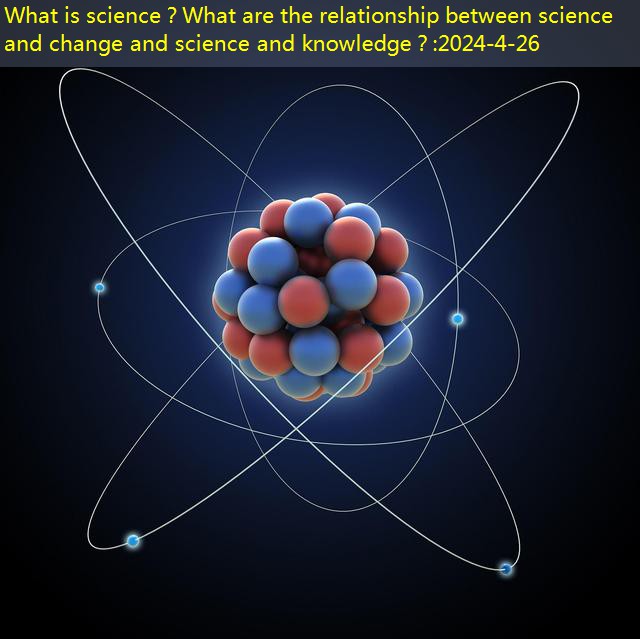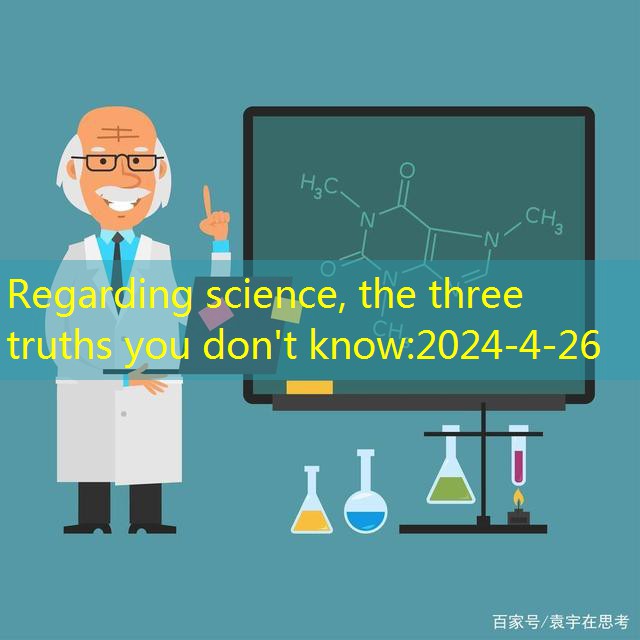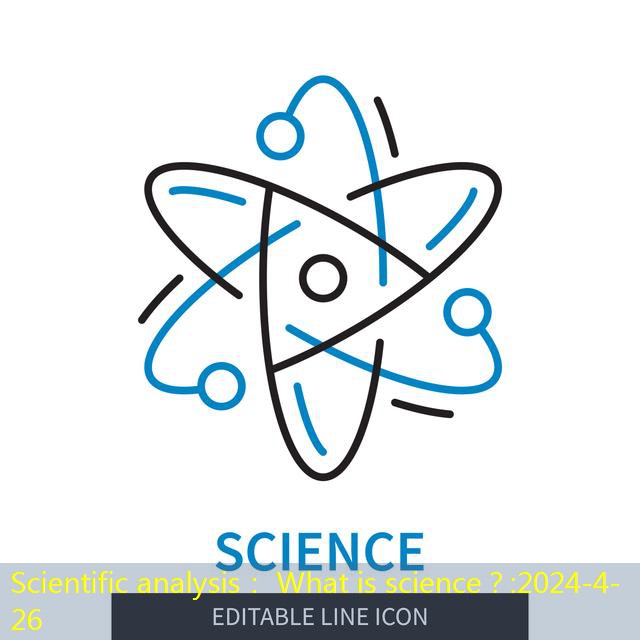Science is a common effort of human beings to understand or better understand the history of the natural world and the way of working in the natural world, and use the observed physical evidence as the basis for this understanding.It is done by observing natural phenomena and/or experiments that simulate the natural process under control conditions.
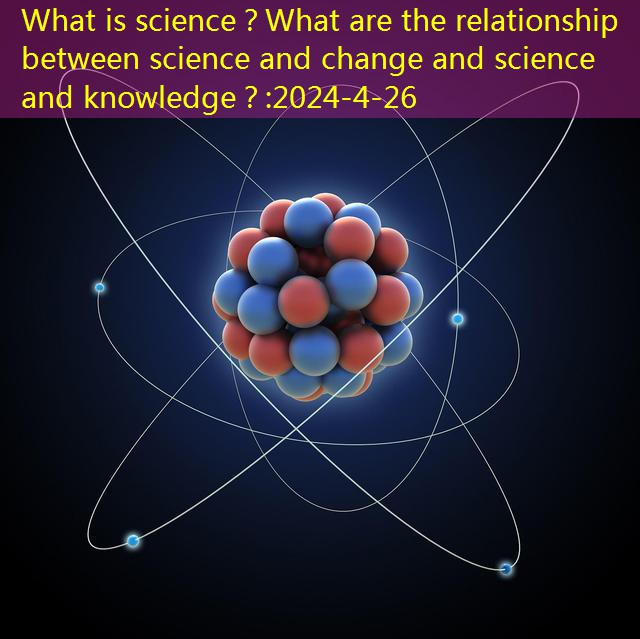
Consider some examples.Ecologists who observe bird -collar behavior and geologists who study the distribution of fossils in the upset are scientists. Their observation is to find a model of natural phenomena.They are just doing outdoors, so they entertain the public with their behavior.Clazy physicists who shoot distant galaxies and climate scientists who screen data from meteorological balloons are also scientists, but they observe in a more discrete environment.
The above example is observing science, but there are also experimental science.The chemists who observe the next chemical reaction rate of various temperatures and nuclear physicists who record the results of specific substances in the record are scientists. They are all experimented to observe a consistent model.Observing biologists who responded to various stimulus reactions are also trying to find behavior patterns.These people usually work in laboratory and wear white laboratory coats, which seems to mean that they also make more money.
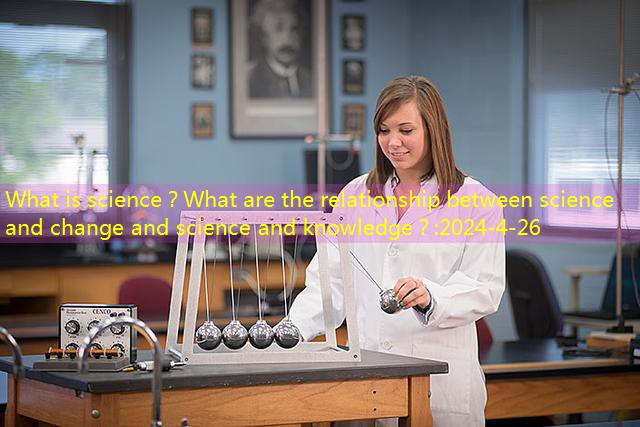
The key thing in common is that all these people are conducting observations of natural or natural simulation in order to understand the principles of nature.We will see that one of their main goals below is to show that the old concept (the concept of scientists a century or a year ago) is wrong. On the contrary, the new concept can better explain nature.
So why do you need to carry out scientific work?—— Personal perspective
So, what are the above people doing?In most cases, they are collecting information to test new ideas or oppose old ideas.Scientists are famous for discovering new things that change our way of thinking about nature. Whether it is found to be a new species of dinosaurs or a new way of atomic bonding.Many scientists have found the greatest happiness in an unknown fact (discovery) before. This fact explains some problems that have not been explained before, or overthrow some of the previously accepted ideas.
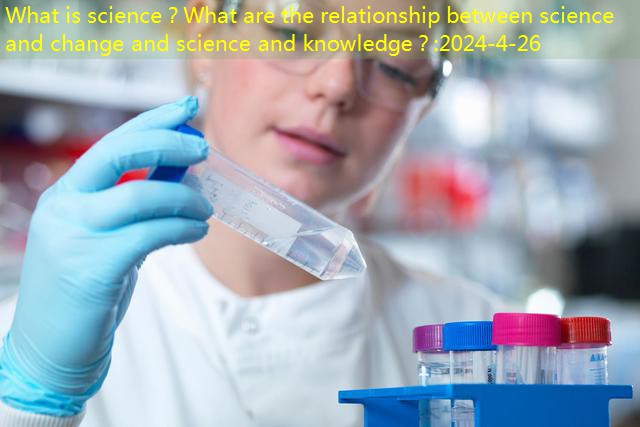
It is the answer based on the lofty principle, which may explain why many people care for science.From a pragmatic perspective, people also make science to earn salary.It is expected that most universities and professors of many colleges are part of the obligation of employment contracts to conduct research on new contributions to knowledge.If they don’t do this, they will lose their jobs.
Scientists also work for the company and get rewards to produce new knowledge about how specific chemicals affect soybean growth or oil formation of oil depth of the earth.These scientists have a higher salary, but they may be obscure because their knowledge is kept confidential by employers for developing new products or technology.
Why do we carry out scientific work?—— social perspective
If the above point of view helps explain why individuals do science, then people may still want to know why society and state pay for these people to engage in science.Why do a society invest in some resources in the process of developing new knowledge about nature, or what to promote these scientists to work for their lives to develop this new knowledge?
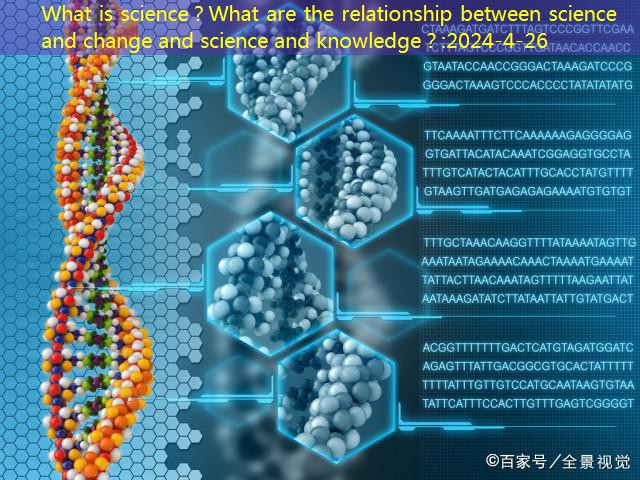
One of the realms of the answer is to eager to improve people’s lives.Geneticists try to understand how certain conditions are passed down from generation to generation, and biologists are tracking the ways of disease dissemination. Obviously, they are looking for information that can improve the lives of ordinary people.Earth scientists are developing better weather predictions or earthquakes, landslides and volcanic eruption prediction models, and they are also seeking knowledge that can avoid difficult conditions that can avoid having trouble to trouble humans for centuries.At least any democratic society, any society that cares about the well -being of the people will support similar efforts to improve people’s lives.
Another area of the answer is the desire for economic development in society.Many earth scientists are committed to finding more effective methods to discover or recycle natural resources such as oil and ore.Fruit trees or plant scientists who look for crops are working hard to cultivate high -nutrition and high -yield crops.Chemists are developing new chemicals with potential application potential, and physicists are developing new materials such as superconductivity, and they are also developing knowledge that can stimulate economic development.In the world’s more and more countries that regard themselves as a world of economic competition, the support for such science is nothing more than investing in the future of the economy.
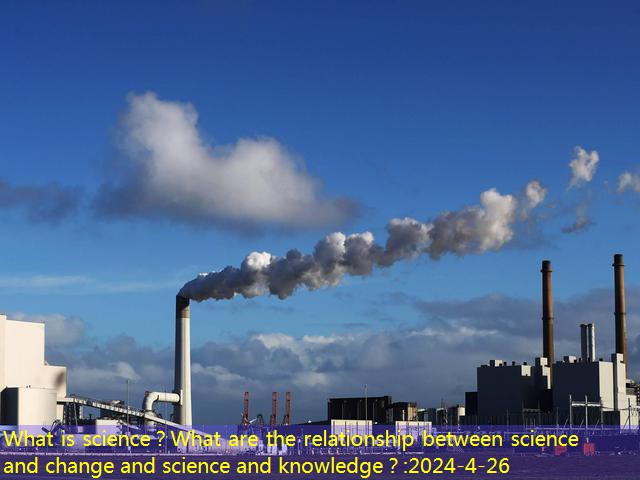
Another complete area of the answer is the increasing control of human planets and its environment.In order to understand how toxic matter and waste in human society, through our water, soil, and air, we have done a lot of scientific work.In order to understand the changes in the atmosphere and the ocean, how to change the climate of our lives and how to control the source of food and water, we have also done a lot of scientific work.In a sense, such science tries to develop the user manuals that humans need, because they are increasingly controlled the global ecosystem and many local ecosystems.
Finally, due to curiosity and satisfaction and inspiration of the surrounding world knowledge, social support science.As we all know, in the clear night sky, the starlight we saw left these stars thousands of years or even millions of years ago. Therefore, almost no one of us will obtain any economic benefits from it, so the light we observe is likeIt is a distant past messenger.However, the tranquility obtained from these knowledge is very valuable for many of us.
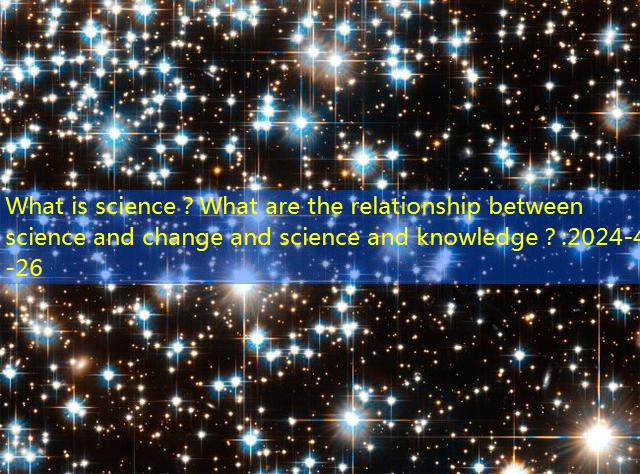
Similarly, few people will gain a greater physical happiness from watching the water flow and reflecting on the water flow (from the distant ocean to the clouds from the distant ocean to the rainwater and storm in the sky).However, the sense of interconnection from this knowledge enriches our understanding of the world and life in a very valuable way.
When combining these invisible income with the more practical income summarized above, it is no wonder that most modern society supports scientific research to enhance our understanding of the surrounding world.
Study how to become scientific knowledge
Studies in laboratories or on -site may be a science, but this is not necessarily contributing to knowledge.Before the scientific research published in the journal of peer review, no one in the scientific community will know or be confident in it.They may hear news about new studies at the meeting, or they may understand these studies through the news group’s gossip, but before publishing the data, there is nothing to pay much attention to.
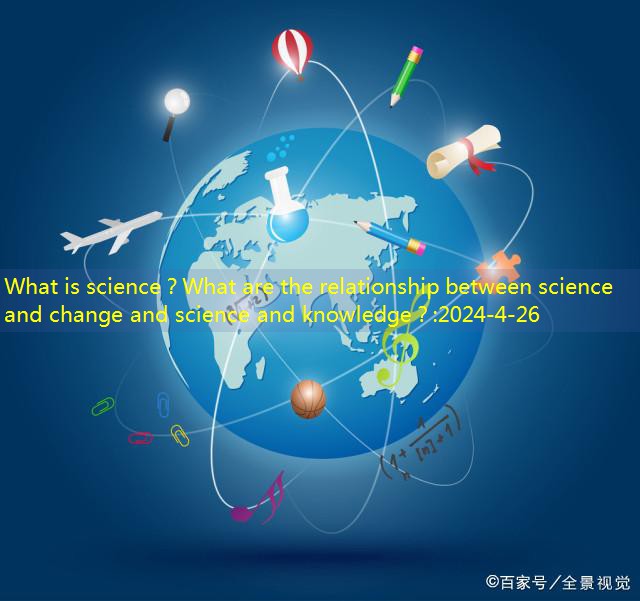
This means that our ecologists must write a dissertation (for a “manuscript”).In the manuscript, he (she) explains why he or her specific research is so important.Explain the meaning of observed from known results.
He (she) then sent the manuscript to the editor of the scientific journal, and then sent it to two to three experts for review.If these experts report that research is carried out in proper and reasonable ways, and the results contribute new useful knowledge, the editor will approve the publication, although there will be almost some changes or additions.Within a few months (we hope), the paper appears in the new issue of the journal, and scientists around the world have understood the discovery of our ecologists.
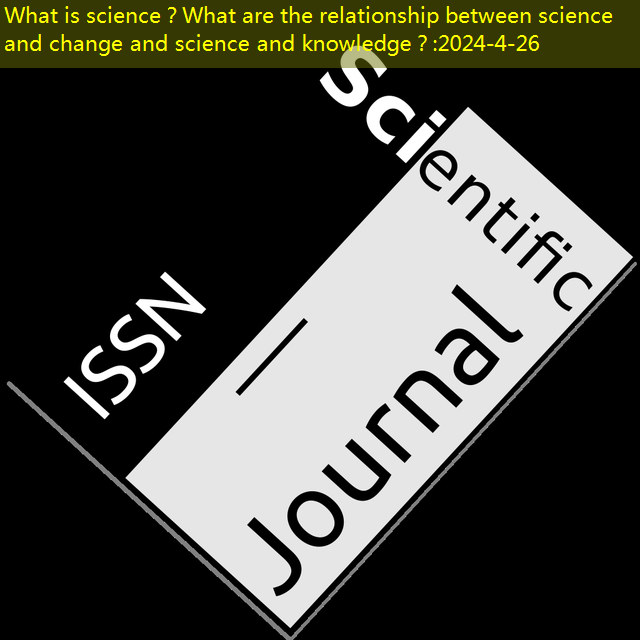
Of course, this business is a bit delicate.If the manuscripts are sent to famous magazines such as “Science” or “Nature”, then the open competition there means that the editor can choose the manuscript that he thinks the most breakthrough, and refuses the other manuscripts. Even if the manuscripts are well done wellEssenceThen, the author of the rejected manuscript sends their works to some less famous journals. These manuscripts may be published, but the audience will be reduced.Regardless of whether it is good or bad, scientists are more inclined to read and accept the papers published in the main journals that are widely issued, rather than published in regional journals with small circulation.
All in all, science has become knowledge through the release of research results.Then, as these knowledge was selected as the content of the textbooks as the content of the textbook, and when the professor and the teacher decided to emphasize from these textbooks, these scientific knowledge will be understood by more people and become common sense of popularization.
Science and change
If scientists have been trying to find new concepts and theories for new discoveries or development, then scientific knowledge systems should continue to change.This change is a better understanding of nature.This goal is achieved by constantly questioning whether our current ideas are correct.As the famous American astronomer Mariamitchell (1818-1889) said, “questioning everything.”
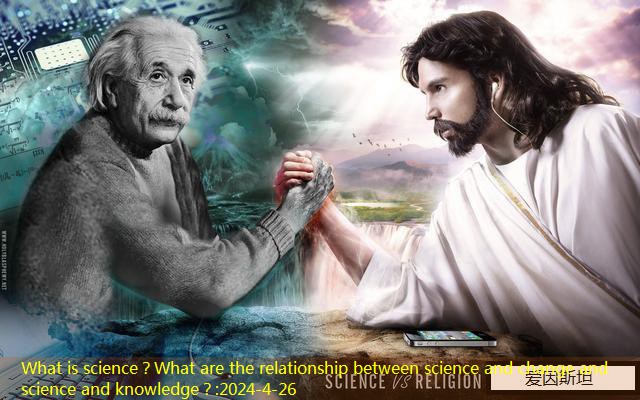
As a result, as the old concepts and the discovery of new evidence, theory has continued to change, or at least time it is modified.In the words of Karl Popper, “science is to correct the error history”, and even Albert Einstein also said to himself, “Einstein … Every year he will recover what he wrote the previous year”. “EssenceMany scientists say they want to be reborn in several centuries, see what new knowledge and new concepts have been developed at that time, and hope to see what concepts in their century have been abandoned.
Our ideas should be compatible with all the evidence we have today. We hope that our ideas can withstand the test of the future.However, any observation of history has forced us to realize that new evidence will be provided in the future, which will at least lead to different explanations.
Some scientists have a strong self -consciousness that they refuse to accept new evidence and new ideas.In that case, in the words of an expert, “science can promote the funeral through funeral.”However, most scientists realize that today’s theory may be outdated in the future, and what we can hope is that our theory will survive in some fine -tuning and fine -tuning of future generations.
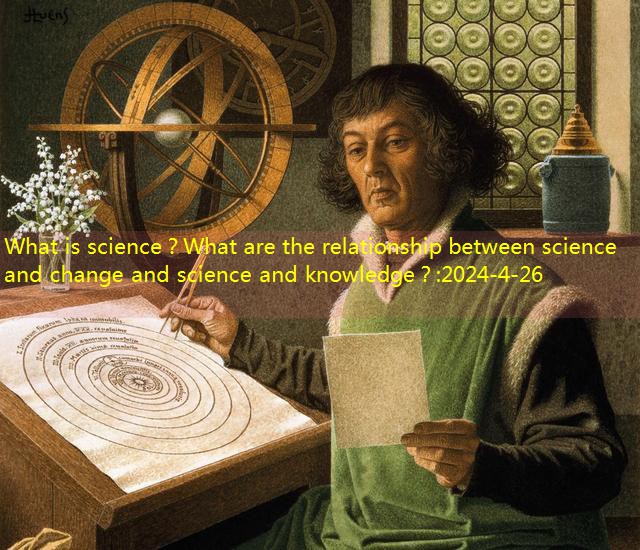
We can use Copernicus to explain.Today, most of us, if you are asked on the corner of the street, we will say that we accept Copernicus’s idea of the earth’s wound around the sun -we say that the sun is correct.However, Copernicus himself believes that the orbit of planets around the sun is perfectly circular.A few centuries later, in the New era, it was obvious that these tracks were oval.Ri Xin said that it was not abandoned, but it just revised it to consider more detailed new observation results.
In the 20th century, we also found that the exact shape of the ellipse was not constant (therefore, the Milan Civic cycle may affect the cyclicality of the glacier).However, we have not returned to the concept of the universe centered on the earth.On the contrary, we still accept the theory of the heart -centered -centered -with the emergence of new data, it is only modified with the passage of time.
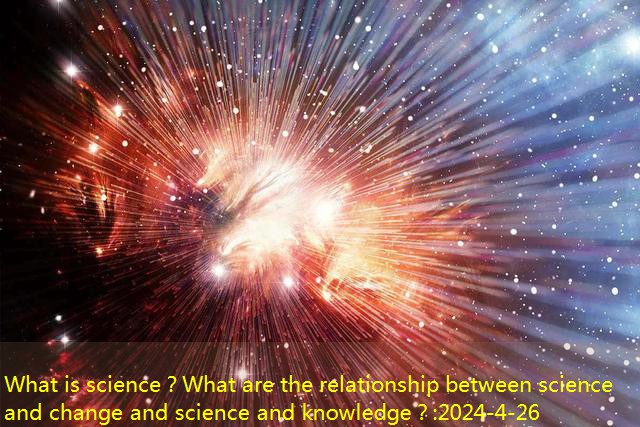
The concept of science will change, and the concept of changing should be expected, and sometimes it will be lost among more discerning scientific critics.A good example is the theory of Big Bang.Every new astronomical discovery seems to prompt people to say, “Look, the theory of Big Bang did not predict this, so the whole thing must be wrong.”Instead, it is usually a small change that prompts the theory to change.However, once a celestial physicist has fully modified the details of this theory, it is enough to explain this new discovery. The critics said, “Look, the theory of Big Bang has been abandoned.”On the contrary, it only revised to consider new data, which is exactly what we call any scientific concepts that should happen over time.
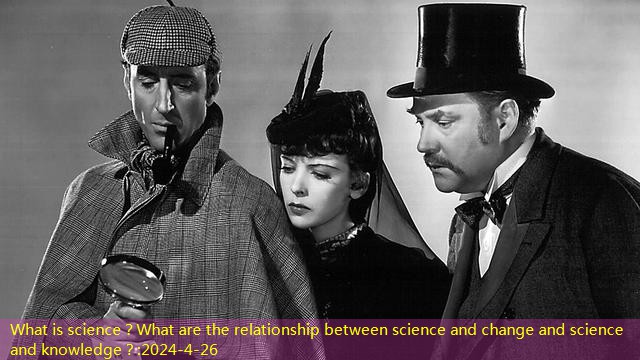
Try analogy: Imagine your favorite fictional detectives (Sherlock Holmes, Miss Marpale, Namshi Delu or anyone else) is studying a difficult case, and the clues can only be obtained from intermittently.Most detectives retain their work assumptions before solving the case.However, let’s assume that the detective decided to think about the development of the story this time to reveal the time order of their current primary suspects and criminal suspects.
Now introduce a role with detectives. When each clue is found, he will shout loudly: “Look, this has changed your previous thoughts -everything is wrong!” Our detective will think, but maybe he will not be willing to not be unhappy.Said: “No, the new evidence just helped me understand the previous confusion.”The same is true in the scientific community, but the nature of nature will never collapse in the last scene and explain how she does.
Science and knowledge
So, what does this mean?This means that science is not yet available, and it may never give a statement of absolute eternal truth -it only provides theory.We know that these theories may be improved in the future, some of which may even be abandoned, and the theories that tend to be more meaningful based on the data generated by future scientists.However, our current theory is our best explanation to the world.They explained a lot of information and passed the test.
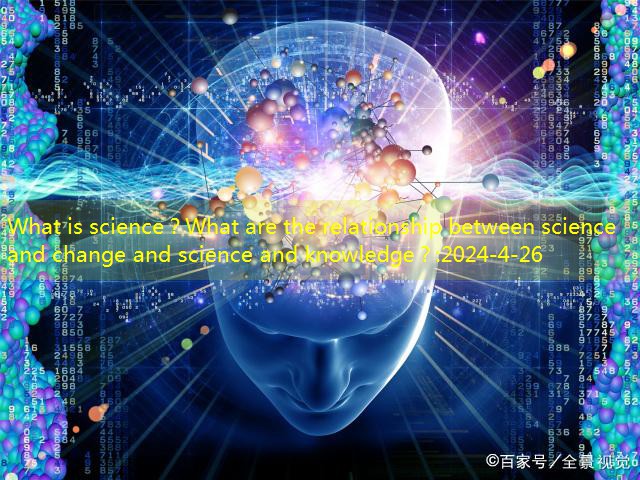
Consider some information that we use to test theory:
From electron microscope to global ecology, we have studied DNA, cells, tissues, organs, and bodies of thousands of (if not millions of species) (if not millions of species), from bacteria to cactus to blue whales.We have studied the physical behavior of particles ranging from Quark to stars, from femtosecond to millions of years of particles.We have characterized about 90 chemical elements and other elements we synthesized on the earth.We have used seismics to study the internal structure of the earth, not only detecting shallow faults, but also studying the core behavior of the planetWe have researched the ocean of the earth with muddy mid machines, bottles, buoys, boats, drilling boats, submersibles and satellites.We have monitored and sampled the earth atmosphere every minute worldwide.We have scanned the external space with a telescope. The wavelength range used by the telescope is from infrared to X -rays, and the detector has been sent to check the distant planets of our solar and solar system.We personally explored the surface of the moon and brought back the rocks from there, and we sampled a lot of meteorites to understand more information about materials from our planet.
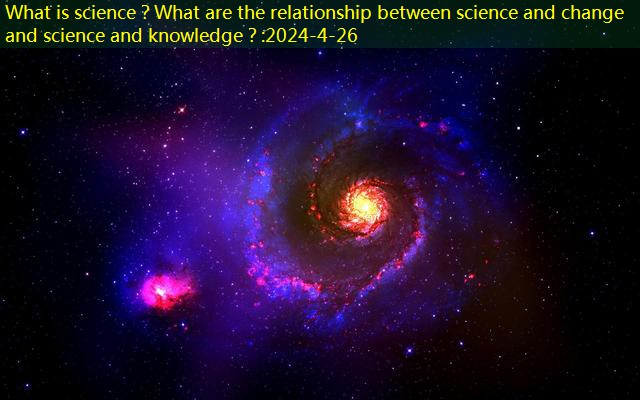
In the next few centuries, we will do more work, but we have collected a variety of information to build theory based on this. These theories are our current scientific understanding of the universe.
Today, people have room for choice.One choice is to accept skepticists who have obtained the science (also theoretical) understanding of nature in constant questioning, which is obtained from all the above observations and measurements.Another choice is to accept people’s traditional understanding of the natural world. These people have a history of hundreds of years or even thousands of years of development. No matter how wise or kind they are, they only have keen eyes and rich imagination.Force, this is the best tool for their understanding of nature.
Report/feedback


